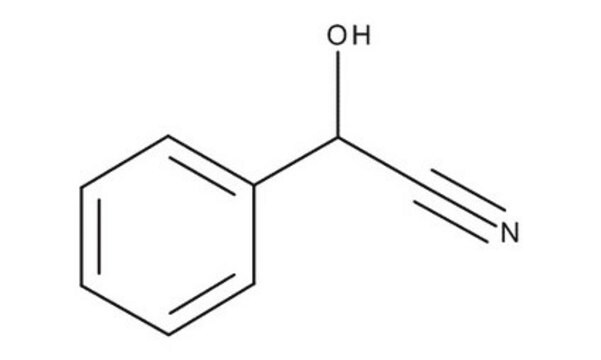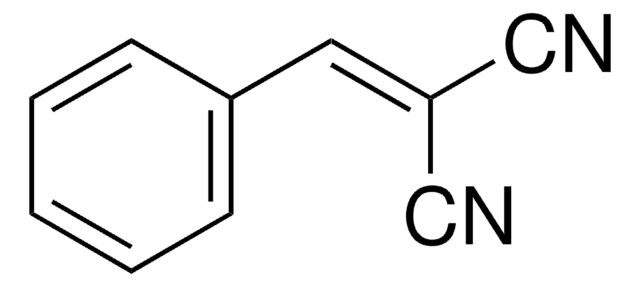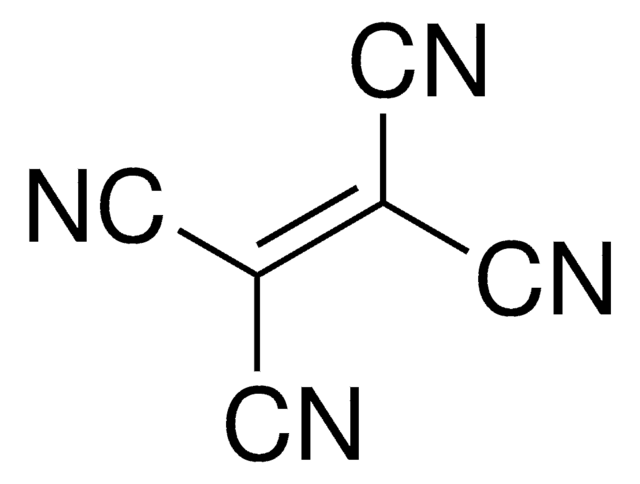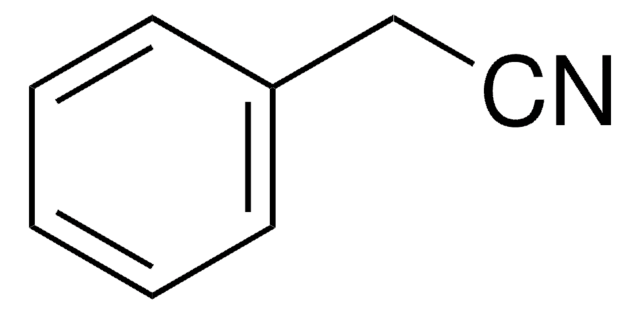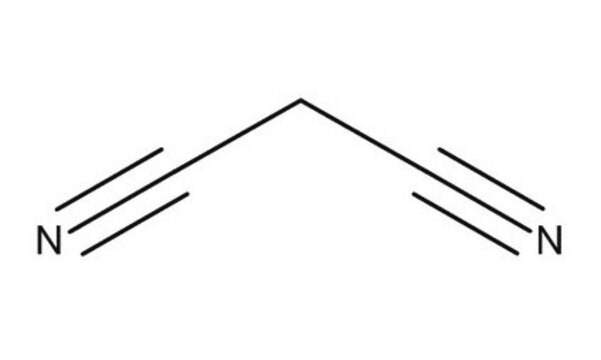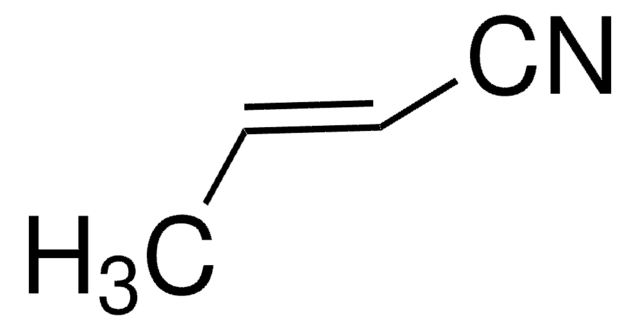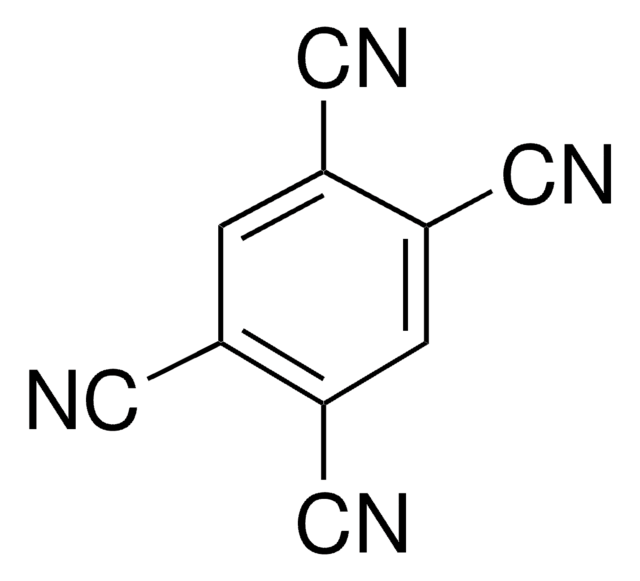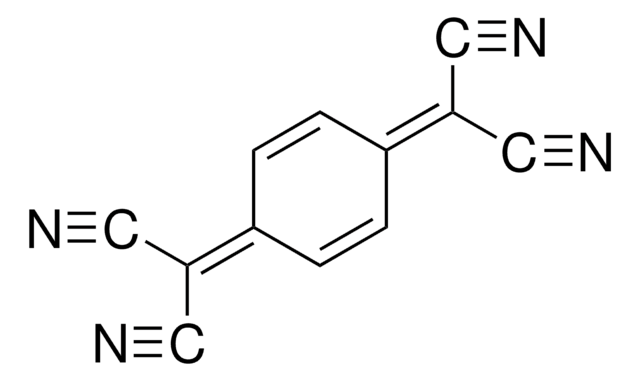131016
Fumaronitrile
98%
Synonyme(s) :
trans-1,2-Dicyanoethylene
About This Item
Produits recommandés
Niveau de qualité
Pureté
98%
Forme
solid
Point d'ébullition
186 °C (lit.)
Pf
93-95 °C (lit.)
Solubilité
ethanol: 50 (mg/mL; colorless to yellow)
Chaîne SMILES
N#C\C=C\C#N
InChI
1S/C4H2N2/c5-3-1-2-4-6/h1-2H/b2-1+
Clé InChI
KYPOHTVBFVELTG-OWOJBTEDSA-N
Vous recherchez des produits similaires ? Visite Guide de comparaison des produits
Catégories apparentées
Mention d'avertissement
Danger
Mentions de danger
Conseils de prudence
Classification des risques
Acute Tox. 3 Oral
Code de la classe de stockage
6.1C - Combustible, acute toxic Cat.3 / toxic compounds or compounds which causing chronic effects
Classe de danger pour l'eau (WGK)
WGK 3
Point d'éclair (°F)
Not applicable
Point d'éclair (°C)
Not applicable
Équipement de protection individuelle
Eyeshields, Faceshields, Gloves, type P2 (EN 143) respirator cartridges
Certificats d'analyse (COA)
Recherchez un Certificats d'analyse (COA) en saisissant le numéro de lot du produit. Les numéros de lot figurent sur l'étiquette du produit après les mots "Lot" ou "Batch".
Déjà en possession de ce produit ?
Retrouvez la documentation relative aux produits que vous avez récemment achetés dans la Bibliothèque de documents.
Les clients ont également consulté
Notre équipe de scientifiques dispose d'une expérience dans tous les secteurs de la recherche, notamment en sciences de la vie, science des matériaux, synthèse chimique, chromatographie, analyse et dans de nombreux autres domaines..
Contacter notre Service technique
